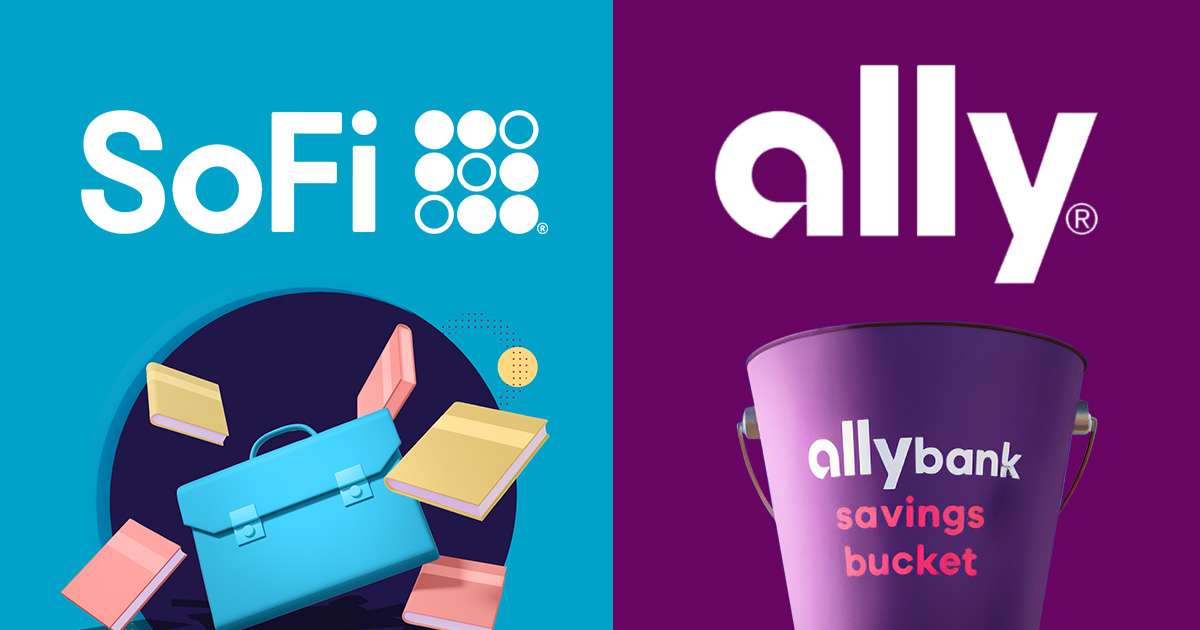SoFi vs. Ally: Which One Offers Better Features and Benefits?

When choosing between SoFi and Ally, it’s essential to understand what each offers and how they compare. Both SoFi and Ally provide a range of financial products and services, but they cater to different needs and preferences. This blog will break down their features to help you decide which one might be the better fit for you.
What are SoFi and Ally Banks?
SoFi and Ally are two popular financial institutions, but they operate in different ways:
- SoFi: Originally known for its student loans, SoFi has expanded to offer various financial products, including personal loans, mortgages, investment management, and insurance. They focus on providing a broad range of services and a strong online presence.
- Ally Bank: Ally started as an online-only bank and is known for its savings and checking accounts, CDs (Certificates of Deposit), and auto loans. They emphasize high-yield savings and user-friendly banking services with no monthly fees.
What is Ally Bank?
Ally Bank is a well-regarded online bank that provides several banking products with a focus on high-yield savings and customer-friendly services. Here’s a quick overview:
- Savings Accounts: Ally offers high-yield savings accounts with competitive interest rates.
- Checking Accounts: Their checking accounts come with no monthly fees and no minimum balance requirements.
- Certificates of Deposit (CDs): Ally provides a range of CD options with varying terms and competitive rates.
- Auto Loans: Ally is a major player in the auto loan market, offering financing options for new and used vehicles.
For more details about Ally Bank’s products and features, you can visit their official website.
SoFi vs. Ally Bank: Main Differences
When comparing SoFi and Ally Bank, it’s important to consider several factors. Here’s a look at the main differences:
Minimum Deposit
SoFi generally does not require a minimum deposit for its personal loans and investment accounts. This makes it accessible for many customers who want to start borrowing or investing without a significant upfront amount. In contrast, Ally Bank also offers high-yield savings accounts and other products with no minimum deposit requirements, making it easy for users to open accounts and start saving with any amount they choose.
Fees
SoFi is known for having no fees on its personal loans, investment accounts, and many other financial services. This can help you avoid extra costs as you manage your finances. Similarly, Ally Bank does not charge monthly maintenance fees for its savings and checking accounts, which is a major advantage for those looking to avoid unnecessary fees and keep their banking simple.
FDIC Insurance
SoFi’s cash management accounts and certain other banking products are FDIC insured up to $250,000 per depositor, per insured bank, through its partner banks. This provides a high level of security for your funds. Ally Bank directly offers FDIC insurance for each qualifying account ownership category, also up to $250,000 per depositor, per insured bank, ensuring that your money is protected up to the legal limit.
Bonus Offers
SoFi occasionally offers promotional bonuses for opening new accounts or taking out loans, such as up to $300 for opening an online bank account and qualifying direct deposits. These promotions vary and may be subject to terms and conditions. Ally Bank, on the other hand, often provides bonuses for new customers, such as up to $100 for opening an eligible account with a qualifying deposit, though these offers also vary and are subject to specific terms.
APY
SoFi’s cash management accounts offer an APY of up to 4.60% as of August 2024, which is competitive but may vary. Ally Bank’s high-yield savings account offers an APY of 4.20% APY as of August 2024, which is among the higher rates available and provides a solid return on savings compared to many traditional banks.
Which Bank Should You Trust?
Choosing between SoFi and Ally Bank depends on your financial needs and preferences:
- SoFi might be the better choice if you are looking for a wide range of financial services beyond just savings and checking accounts, such as personal loans and investment management. Their flexibility and lack of fees can be advantageous if you need multiple financial products.
- Ally Bank could be a better fit if you are primarily interested in high-yield savings accounts or CDs with no monthly fees. Ally’s high APY and robust FDIC insurance make it a strong choice for secure and lucrative savings.
SoFi vs. Ally – Making the Right Choice for Your Finances
Whether you choose SoFi or Ally depends on your specific financial needs. SoFi offers a diverse array of financial products and services, making it suitable for those looking for more than just banking. On the other hand, Ally Bank excels in providing high-yield savings options and fee-free banking services. Consider what features are most important to you and choose the option that aligns with your financial goals.

